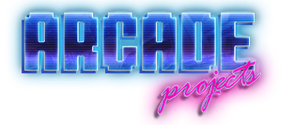l_oliveira
Grand Master
The DSP chip can mix up to 16 voices (I think it's programmed to do that, it maybe could do more channels if it was ran at a higher clock and the program in it was coded for more channels)...
You know, what you do with the channels depend solely on what the sound driver is doing with them so if you wanted to play music with all 16 channels you sure could.
Systems with less audio channels the designer usually has something going which uses all the channels to play the music and cut some of the music to free one or two channels to play sound effects temporarily. That's common on the NES, for example.
I remember seeing a sound emulator (I think it was "Highly Quixotix" a Q-Sound emulator from Neil Corlett of "Highly Experimental" fame) which had gauges showing which channels were in use and even gave means to mute them.
Basically a "smart" sound chip you tell it what it has to play, at what frequency and it does everything else by itself. The whole point of these chips exist is save the CPU the hassle of actually need to process the audio data. So a DSP is the perfect type of processor element to deal with this kind of work.
Well I don't know exactly what you want to do...
You want to change the instruments? Want to understand the driver so you can port music for it? Asked just for curiosity sake...
You know, what you do with the channels depend solely on what the sound driver is doing with them so if you wanted to play music with all 16 channels you sure could.
Systems with less audio channels the designer usually has something going which uses all the channels to play the music and cut some of the music to free one or two channels to play sound effects temporarily. That's common on the NES, for example.
I remember seeing a sound emulator (I think it was "Highly Quixotix" a Q-Sound emulator from Neil Corlett of "Highly Experimental" fame) which had gauges showing which channels were in use and even gave means to mute them.
Basically a "smart" sound chip you tell it what it has to play, at what frequency and it does everything else by itself. The whole point of these chips exist is save the CPU the hassle of actually need to process the audio data. So a DSP is the perfect type of processor element to deal with this kind of work.

Well I don't know exactly what you want to do...
You want to change the instruments? Want to understand the driver so you can port music for it? Asked just for curiosity sake...



